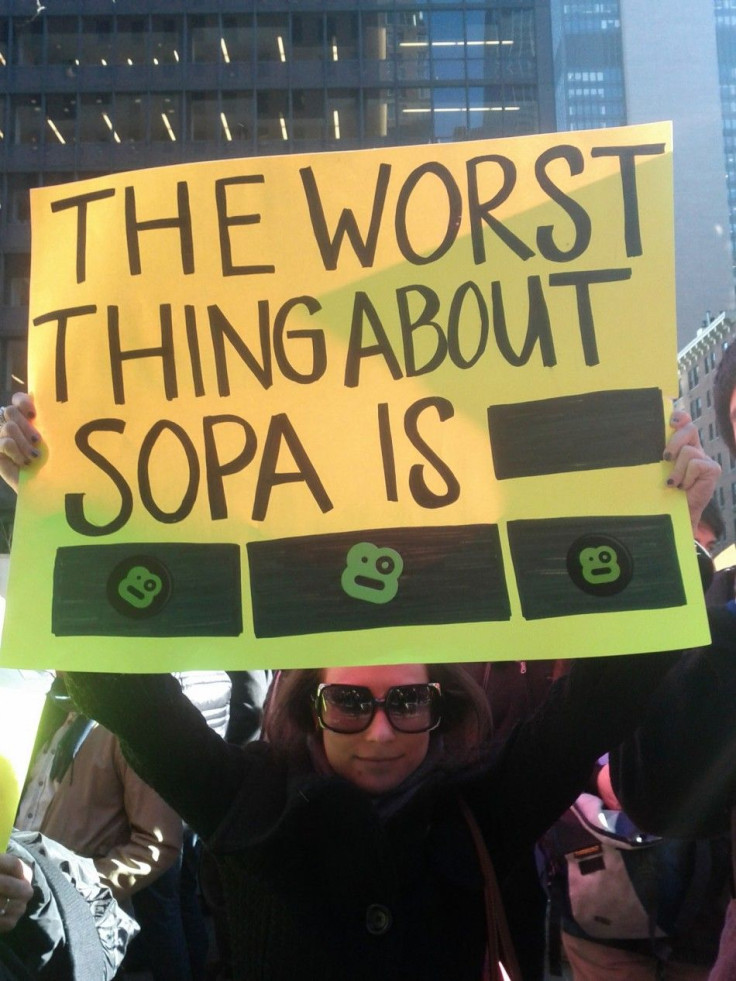SOPA PIPA Bills 2012: Senate Support Collapses in Wake of Blackouts

At least 16 members of the U.S. Senate, which include several co-sponsors of the controversial bill Protect Intellectual Property Act (PIPA), have announced their withdrawal of support on Wednesday in the wake of unprecedented Internet protests.
PIPA, unlike SOPA, targets sites which are primarily used for pirating content, for instance, most of the BitTorrent sites. But SOPA targets any site that commits or facilitates copyright infringement, which could lead to a potential shut down of perfectly legal sites including Reddit or Wikipedia, if a user happens to upload copyrighted content.
The senators who were quick to join the opposition include 14 Republicans and two Democrats. The members who announced their opposition are former PIPA co-sponsors Roy Blunt (R-MO), John Boozman (R-AR), Ben Cardin (D-MD), Orrin Hatch (R-UT), Marco Rubio (R-FL), David Vitter (R-LA) and former supporters Scott Brown (R-MA), John Cornyn (R-TX), Jim DeMint (R-SC), James Inhofe (R-OK), Mark Kirk (R-IL), Jeff Merkley (D-OR), Lisa Murkowski (R-AK), Olympia Snowe (R-ME), Tom Coburn (R-OK) and Pat Toomey (R-PA), reported Ars Technica.
An overwhelming majority of Republican members in the opposition is noteworthy, since copyright infringement which PIPA deals with, is not considered a partisan issue.
Until Wednesday's dropping out of members, PIPA had 16 Republican co-sponsors and 23 Democratic ones, which amounted to almost 40 percent of the Senate with 100 members. However, the percentage support of Senate for the bill is now less than a quarter and is mostly from the Democrats.
Republican senator from Florida Marco Rubio, previously a sponsor, said there were legitimate concerns about the impact of the bill on access to the Internet, and about the potentially unreasonable expansion of the federal government's power to impact the Internet, Ars Technica reported.
In an update on Facebook, Rubio wrote that the Congress should listen to popular concerns and avoid rushing through the bill which could have many unintended consequences.
© Copyright IBTimes 2025. All rights reserved.






















